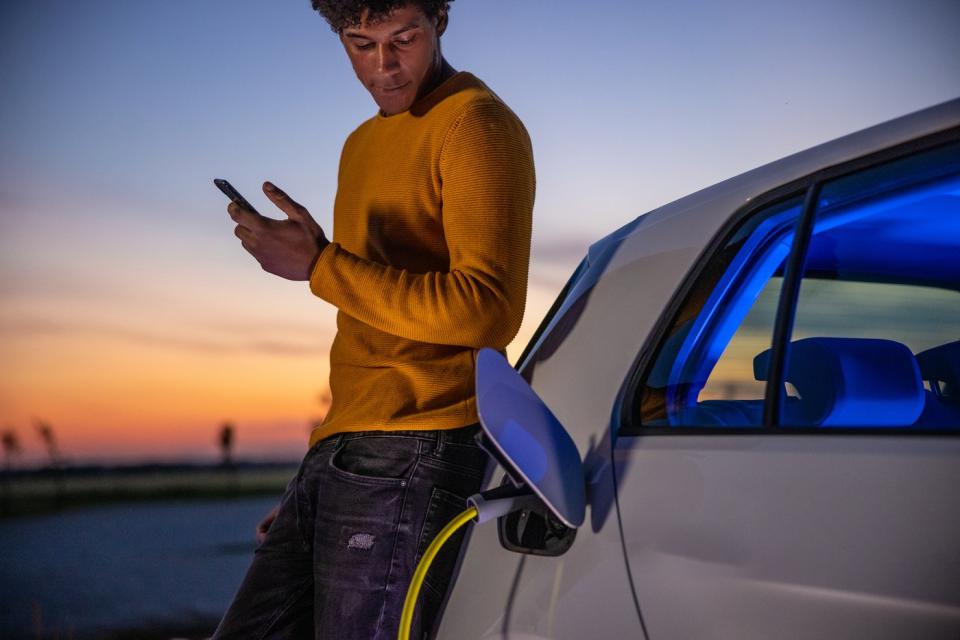QuantumScape (NYSE: QS) posted its second-quarter report on July 24. Once again, the developer of solid-state batteries didn’t generate any meaningful revenue because it hadn’t commercialized any of its products yet. Its net loss widened year over year from $117 million to $123 million, or $0.25 per share, and missed analysts’ estimates by two cents.
On an adjusted earnings before interest, taxes, depreciation, and amortization (EBITDA) basis, its loss widened from $64 million to $73 million. It reiterated its previous full-year guidance for an adjusted EBITDA loss of $250 million to $300 million, which would be slightly wider than its adjusted EBITDA loss of $249 million in 2023.
QuantumScape’s stock tumbled after that lackluster report, and it now trades 95% below its all-time high from December 2020. But could it recover over the next 12 months as it makes more progress toward commercializing its batteries?
What does QuantumScape do?
QuantumScape is developing solid-state batteries that generate power from solid electrolytes instead of the liquid electrolytes used in lithium-ion batteries. That difference allows them to be charged more quickly with higher capacities. They’re also more resistant to higher temperatures, less volatile, and last longer than their liquid-based counterparts.
Solid-state batteries are already used in smaller devices like pacemakers, wearables, and Internet of Things (IoT) gadgets, but they haven’t been widely installed in mobile devices or electric vehicles (EVs) because they’re expensive to mass produce. QuantumScape wants to establish an early mover’s advantage in this nascent market.
QuantumScape says is latest solid-state batteries can give EVs a range of 400 to 500 miles with a charging time of less than 15 minutes. By comparison, most lithium-ion batteries for EVs have a range of about 300 miles with an average charging time of 30 minutes. That range sounds like an ambitious goal, but Volkswagen has been working with the company for 12 years to develop and commercialize its first batteries.
When will QuantumScape start making money?
QuantumScape went public by merging with a special purpose acquisition company (SPAC) in 2020. Prior to its public debut, it claimed it could generate $14 million in revenue in 2024 as it sold its first batteries. It also claimed its top line would grow at a staggering compound annual growth rate (CAGR) of 363% from 2024 to 2028 and reach $6.44 billion.
But after several major delays, QuantumScape abandoned those ambitious goals. It doesn’t expect to generate any meaningful revenue this year as it ships its first low-volume prototype samples of its QSE-5 batteries to a few automakers. In 2025, the company plans to start shipping its samples in higher volumes, but analysts only expect it to generate about $5 million in revenue with an adjusted EBITDA loss of $304 million.
In 2026, analysts expect QuantumScape to generate $58 million in revenue with an adjusted EBITDA loss of $299 million as it finally commercializes its first batteries. But even based on that rosy forecast, its stock still looks expensive at about 70 times its 2026 sales — and that’s assuming it can actually ramp up its production.
Whether or not QuantumScape can achieve that goal is debatable. It initially established an early mover’s advantage in the solid-state battery space, but it already faces tough competition from similar start-ups like Blue Solutions. Big automakers like Toyota and Nio have also been developing their own batteries. If QuantumScape can’t stay ahead of those competitors over the next two years, it could be rendered obsolete long before it scales up its business.
On the bright side, QuantumScape recently secured a new agreement with Volkswagen’s PowerCo subsidiary to co-develop and license its upcoming batteries. It says the royalty prepayments from that deal will extend its “cash runway into 2028.”
So will QuantumScape’s stock bounce back in a year?
QuantumScape’s stock is difficult to value, but Markets and Markets expects the solid-state battery market to grow at a CAGR of 41.5% from 2023 to 2030. If QuantumScape successfully commercializes and mass-produces its batteries, it could have a good shot at matching or exceeding the market’s long-term growth rate. Those expectations could limit its downside at these levels as investors patiently await more developments in 2025 and 2026.
Therefore, I wouldn’t be surprised if QuantumScape’s stock remains around its current price throughout the second half of 2024 . But in the first half of 2025, its stock could skyrocket as it finally starts to generate meaningful revenue from its higher-volume samples. So for now, QuantumScape will remain a speculative stock — but its latest agreement with PowerCo suggests it could generate multibagger gains over the next 12 months if it proves its business model is sustainable.
Should you invest $1,000 in QuantumScape right now?
Before you buy stock in QuantumScape, consider this:
The Motley Fool Stock Advisor analyst team just identified what they believe are the 10 best stocks for investors to buy now… and QuantumScape wasn’t one of them. The 10 stocks that made the cut could produce monster returns in the coming years.
Consider when Nvidia made this list on April 15, 2005… if you invested $1,000 at the time of our recommendation, you’d have $692,784!*
Stock Advisor provides investors with an easy-to-follow blueprint for success, including guidance on building a portfolio, regular updates from analysts, and two new stock picks each month. The Stock Advisor service has more than quadrupled the return of S&P 500 since 2002*.
See the 10 stocks »
*Stock Advisor returns as of July 22, 2024
Leo Sun has no position in any of the stocks mentioned. The Motley Fool has positions in and recommends Volkswagen Ag. The Motley Fool has a disclosure policy.
Where Will QuantumScape Stock Be in 1 Year? was originally published by The Motley Fool
Credit: Source link




